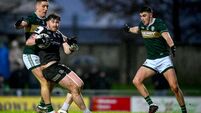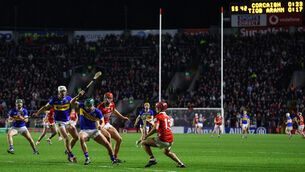Martin O’Neill scoring an own goal by keeping players in dark

According to the Irish Daily Mail’s veteran and respected beat reporter Philip Quinn, O’Neill leaves it until an hour or so before kickoff to reveal to his players the starting lineup.
Thus Aiden McGeady was stunned to learn in the dressing room that he was starting in central midfield against Germany. Shay Given did a double-take before the home game against Poland when learning he’d got the nod ahead of David Forde to start his first competitive international since Euro 2012. The last day against Scotland, Jeff Hendrick was the startled one who’d to get his head around the fact that he was starting.












